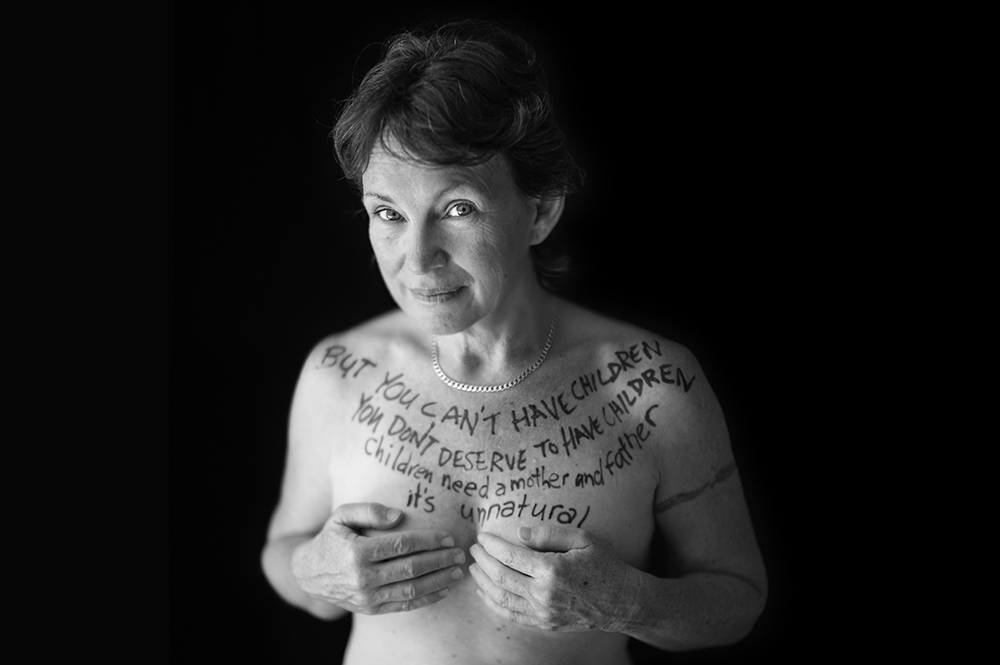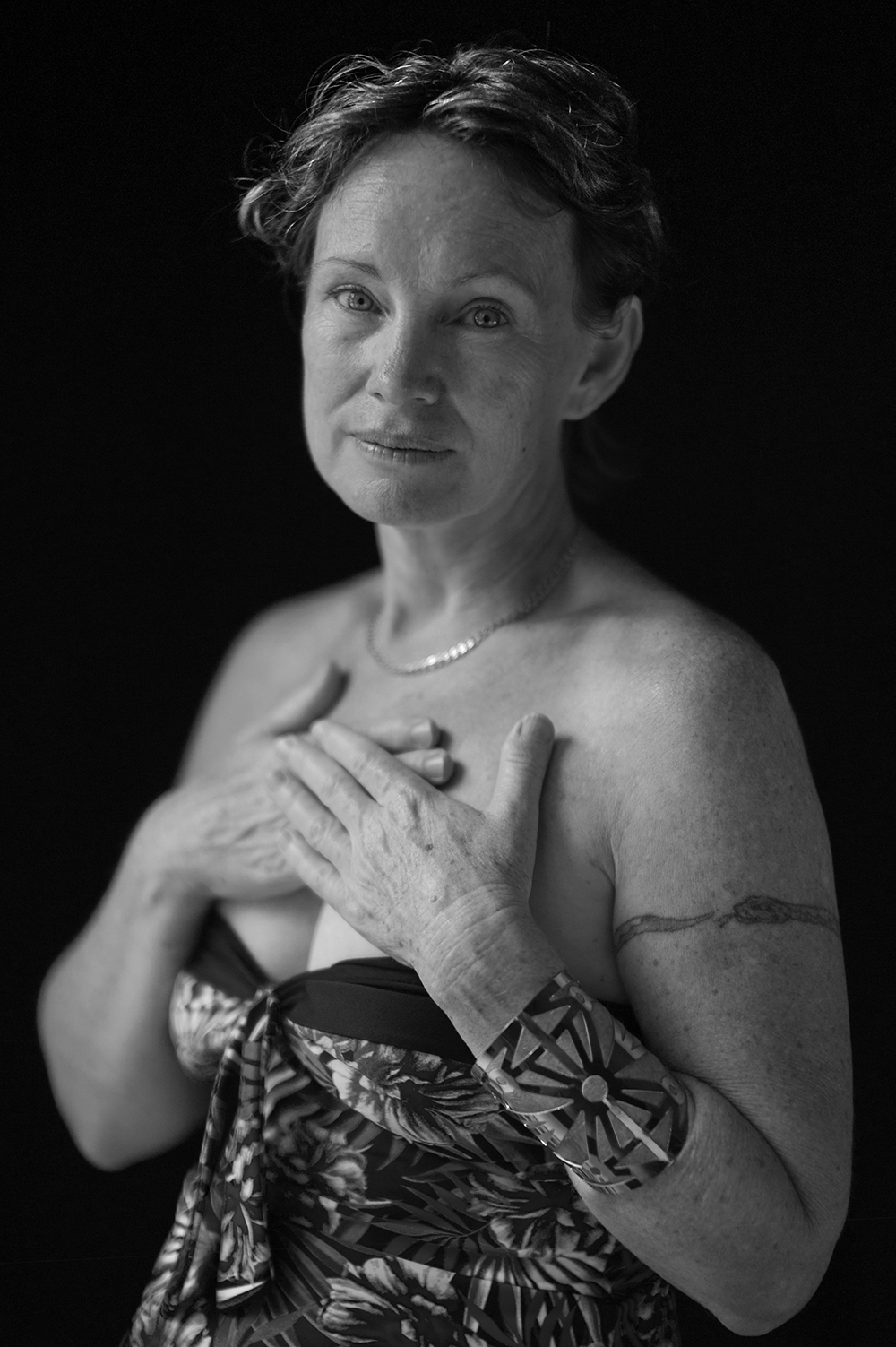
These portraits are designed to sit quietly inside the deluge of public debaters that swamp us every time there is mention of something other than heterosexuality. They are about basic trust – the foundation of belief in society and the progression of life – and how that trust can be trampled on when people are made invisible, trivialised, humiliated, derided, or seen as and spoken of as somehow being ‘wrong’.
They are part of a larger and ongoing series titled But you’re not ugly. The process of how they came about is simple, but its alchemy is difficult to explain. Overall, my process involves listening deeply as each subject talks about aspects of their sexuality. My job is to take notes and to ‘hold’ the process. Usually, by the end of our conversation, there will be a list of words and phrases – not a chronological list, but definitely an elegant description of a life. There is always one word or phrase that resonates deeply with the subject, and that is what they take to the next level by merging it with their physical form – in this project, their bodies.
Each subject has two photographs. After we have worked with the text on the body, shot some images and have had a look, the second image evolves quickly. The outcome is not fixed, and the fluidity of the subject’s self-love as they ‘see’ themselves is the work’s essence.
So, on their surfaces, the photographs appear to be about people coming out – some to a significant other(s), some not – and some are people’s most memorable interactions about their sexuality. But if we shift our gaze away from the subject as being the ‘other’, and see them as connected to community, we begin to understand their whole meaning. They are portraits of transactions, then – portentous moments – between people, a focus on a person’s particular response to someone else’s telling of intimacy and the previously ‘undeclared.’ When the images become more about human relationships – where trust, respect and boundaries shift when challenged – we see how intrinsically connected, and, therefore, responsible for each other we are.
If we arrive at a defining moment – speaking about that which could invite public shame, disbelief and scorn to someone we believe in or trust – we call into question basic human relationships. Depending on the code of conduct and the conversation’s outcome, our attachments to family, friends, love and the wider community become vulnerable and can be altered.
Finally, these portraits solidify a misdirected social narrative that we, consciously or not, brace ourselves for every day. They shine spotlights on our evolved democracy, and how within it, we have smaller systems of dictatorship that flourish within our families, friendships, schools, workplaces, institutions and religions; public and private forms of organised social violence. They open us up to the tyranny that exists in our minds and our private lives.
Using words on the body forces the viewer to focus on the moment when we are – or even the idea that we could be – betrayed by a source of comfort, and how we can trick ourselves into misperceiving pity or tolerance for acceptance or support.
The process asks viewers to consider how we rarely contemplate ourselves worthy of admiration, appreciation or genuine affection … and how this type of self-deception can leave us feeling utterly alone.
All images ©Therese Ritchie, 2016. Printed on Ilford Galerie, professional photographic paper 420 x 594mm. My thanks to David Hancock, Penny Rose Wiggins and all participants included here: Jodi, Alexandra, Jenne, Amanda, Cecelia, Koulla, Natalie, Sara, Sally, Joni, Dan, Lyndall, Tash and Therese.










